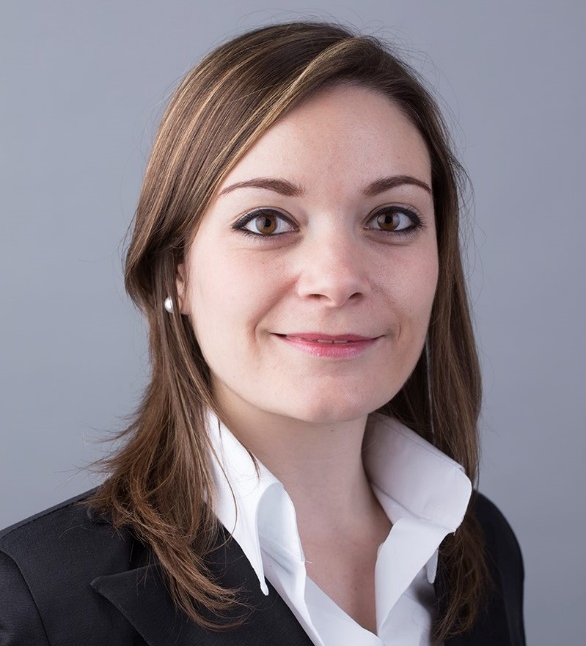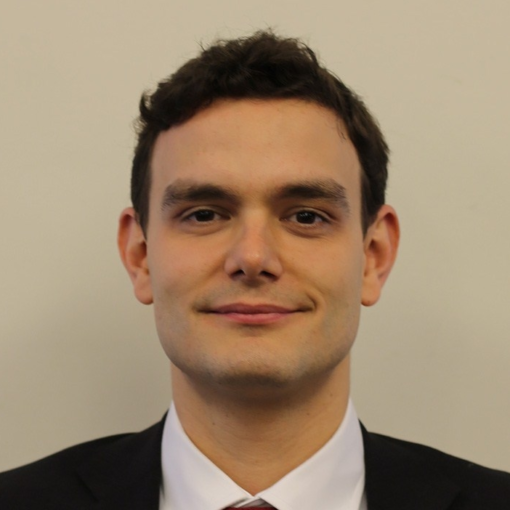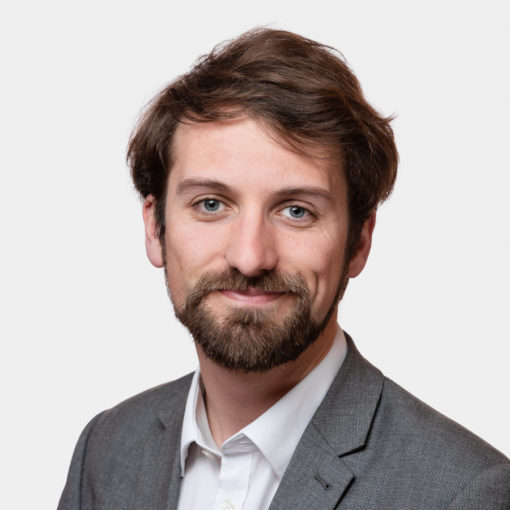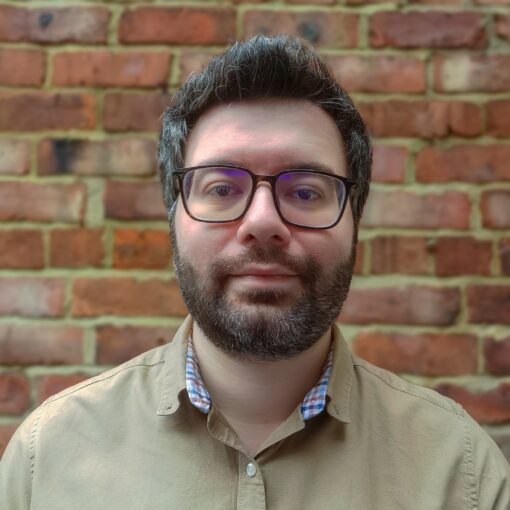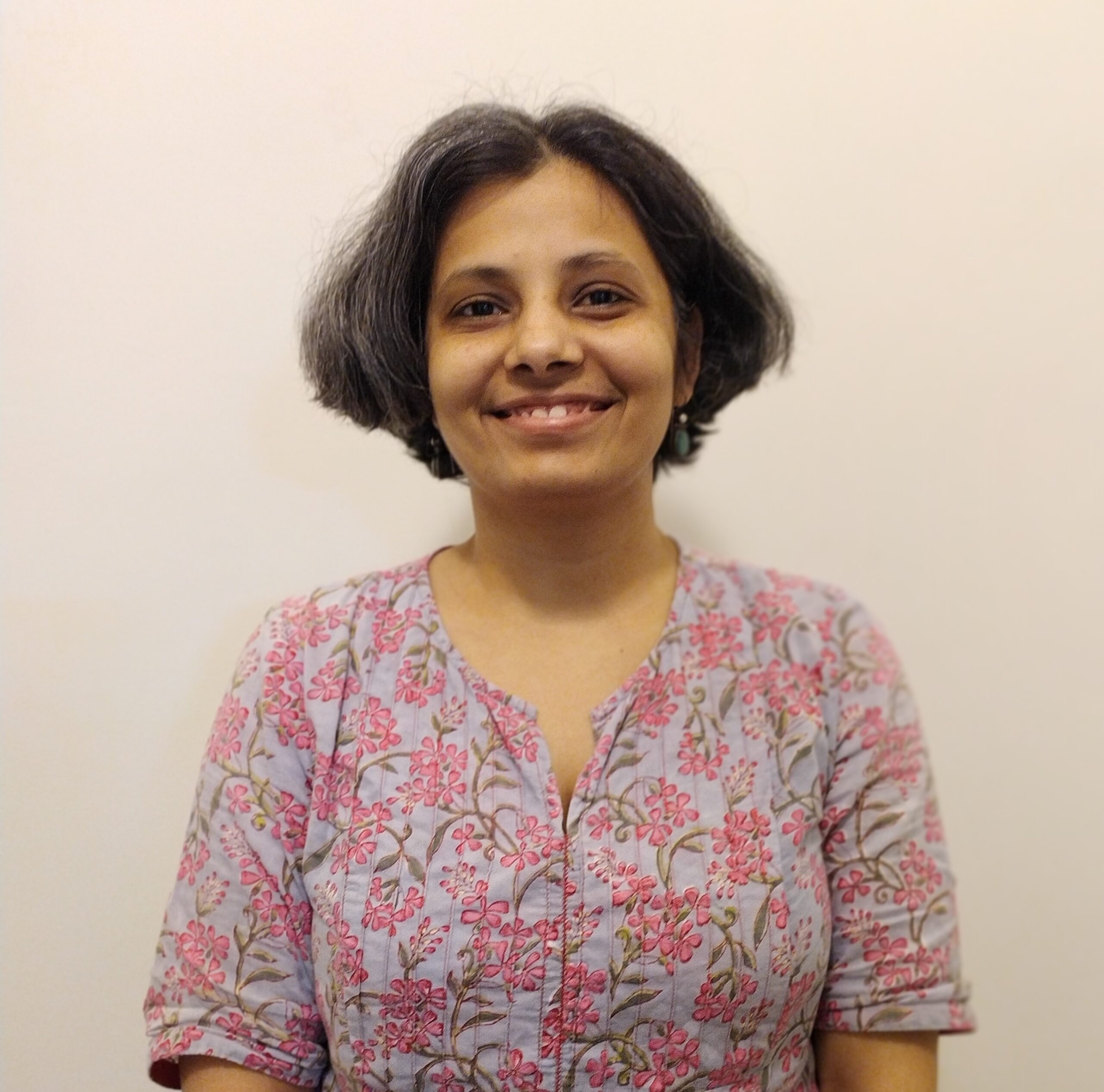DPhil in Biophysics, University of Oxford (2016)
| Senior Consultant | |
|---|---|
| Cambridge Healthcare Research | |
Year entered into non-academic position: 2017
Job highlight: At CHR, I have had the opportunity to grow and develop according to my personal goals and ambitions from Day 1. Roles are not set in stone, and more responsibility is given if you can show you have what it takes. I enjoy the variety of projects, the level of transparency and direct interaction both with peers and senior managers, as well as the company culture and true attention to employee wellbeing.
Left academia after: 1 year of postdoctoral work
What is your background?
Prior to CHR, I adapted a novel technique for internalization and imaging of dye-labelled proteins in live bacteria, worked as a student consultant for Nominet UK and served several leading roles in University Societies. I hold a BSc and an MSc in Physics from the University of Pisa, Italy, and a DPhil in Biophysics from the University of Oxford. I have also held a one-year postdoc role with a shared grant from the BBSRC between the departments of Physics and Biochemistry at Oxford.
Why did you move away from academia?
As much as I enjoyed my PhD, towards the end of it I started hearing a little voice in my head that made me doubt if my long-term career was going to be in academia.
Mostly because I wanted to have a bigger impact on society than I could have had from the lab, interact with people more and most importantly, have economic stability for the future – which is quite difficult to find in science.
Is there anything you miss about academia?
As a junior consultant, I sometimes missed the flexibility of academia in terms of working hours; however, in my current role I have gained much flexibility and the company’s trust to manage my time independently. What counts is to get the job done!
How did you get this job? Did you face any challenges when considering a move away from academia or applying for the role?
I first learned about a job opportunity at CHR from the Careers Service website of the University of Oxford. The main challenge I encountered when deciding to make a move from academia into consulting has been developing the commercial acumen needed to “hit the ground running”; of course, I had a scientifically-oriented mindset, which turned out to be very helpful, but I also had to practice assessing the commercial implications of certain events in the Healthcare space. I set out to perform a lot of case studies and exercises, both online and on textbooks, I practiced with other fellow students also preparing for consulting job interviews and started keeping up to date with news in the sector.
What motivated you to/why did you choose the sector you transitioned into?
I wanted to make a move to consulting, though still leverage the scientific mindset and knowledge I had gained over my education years from Bachelor’s to Master’s and PhD. Healthcare and Life Sciences consulting seemed the perfect niche for me.
Did you think you had the skills required for your current position before you started? Were you right?
I was confident that I had the softer skills required, i.e. good time management, teamwork and organizational skills, as well as a strong analytical and logical mindset; I thought I would learn everything else on the job, thanks to my innate curiosity and drive to step out of my comfort zone, which has been the case. However, I did experience a steep learning curve for what concerns commercial thinking and market-oriented analysis.
How did your PhD prepare you for your current job? For example, what were the transferable skills that you developed during your PhD that are most relevant to your current job?
- Writing PhD thesis and scientific papers
- Speaking at internal group meetings
- Presenting at conferences and scientific meetings
- Talking to a non-specialist audience (e.g. Science Fairs, outreach events etc)
- Time management
- Organizational skills
- Analytical, logical and critical thinking
- Problem solving
- Participating in University societies and developing my leadership skills
- Act as student representative and/or as demonstrator/supervisor to learn how to train junior colleagues / stand for others
Did you have any preconceptions about your sector that proved to be wrong?
I was told working hours in consulting tend to be very long, with continuous travel and busy weekends. While it is true that there are spikes in the workload, especially around deadlines, the company has always been very attentive to employee welfare and work-life balance, and I feel this has made the work sustainable through my career at CHR. A special mention needs to be made with regards to the shift the pandemic has caused to working remotely: very quickly, CHR has put in place a number of initiatives and activities to mitigate the sense of isolation that employees were feeling. To name a few – virtual team lunches, physical and mental health allowance, regular surveys etc.
Can you describe a typical week in your job?
As a Senior Consultant at CHR, my role is to provide strategic decision support and action planning to global leaders in the life-sciences and healthcare spaces. Since I started at CHR 3.5 years ago, I have been exposed to several types of projects, from medical devices to rare diseases and generics, but I especially deep-dove into the oncology arm of CHR, gaining a thorough understanding of this therapeutic area, including drugs on the market and in development, as well as recent changes in the competitive landscape. A typical week as a Sr Consultant is very different than a typical week as an Associate, although some components of the work are maintained. I love the fact that consulting is a very varied job! I would start the week by meeting up with my team members across different projects, organise the tasks for the week and ensuring they are completed according to set timelines. During the week, I would review the reports/deliverables that my team has put together and provide feedback. Together with the team, I would then present relevant findings and discuss implications with clients. Sometimes, especially in the fourth quarter of the year, I will lead proposal development to secure new projects and clients. In any given week, there will also be a substantial amount of time dedicated to coaching and training of junior colleagues, participating in internal working groups for the continued growth of the company and planning ahead to ensure projects are on the right track to deliver high quality work to clients. Sometimes, I also interview prospective candidates, participate in medical congresses, as well as travel to client sites for business development meetings.
What is the workplace culture like? Please include comments on work-life balance, flexibility, remote working?
CHR was a great place for me to start my career straight out of academia. Since the very first day, the leadership team has invested in my capabilities and helped me develop a solid skill set for the job despite my lack of previous experience in consultancy. There is clearly a lot of attention given to employees’ welfare and the management is very transparent and open to constructive comments and suggestions. The company structure is flat, with no imposing hierarchy, and if you show that you have the right capabilities you can progress and get great first-hand exposure to clients quite early on.
In many cases, people like me starting their first job do not have much commercial background straight out of academia, so the learning curve is obviously steep in the beginning. However, at CHR everyone is very friendly and willing to help, and you are given all the tools and the chance to learn.
Sometimes, especially when deadlines approach, hours can be long, but working in a team and coordinating tasks and timelines really helps share the workload and ensure that everybody gets a good work-life balance. One year into the job, I decided to move back to my home country, Italy, and this was possible thanks to the trust and flexibility that the company gave me. I have now been working remotely for over 2.5 years, and am still enjoying every day of it!
Do people with a PhD frequently get hired in the company/sector?
Sure. Having a PhD is not a must in healthcare consulting but having obtained one certainly represents a strength to leverage in the application process, in terms of being able to conduct independent work, presentation/writing skills, time/workload management, analytical and training skills.
What are your favourite parts of your job?
Receiving positive feedback from clients is always very rewarding, as well as winning projects and being contacted by new clients that have heard about us through word of mouth from their colleagues. On a separate note, I also deeply enjoy coaching and mentoring junior team members, guiding them in their professional development as consultants.
What are your reflections on your career path?
In hindsight, as much as I loved my PhD years, I would think twice before undertaking it, as I could have started gaining work experience earlier on had I gone directly into the job market after my Master’s.
Do you have any advice for current graduate students and postdocs considering a career outside of academia?
- Go to as many career events as you can, talk to employers and University advisors, these are invaluable tools to understand what you want to do in your life as well as to help you making it become a reality
- If you do leave academia, don’t see it as a failure. An academic background is useful in such a wide variety of sectors and we can feel rewarded and socially impactful in a range of roles other than academia
What do you know now that you wish you’d known when exploring a transition?
Be self-confident and stand behind your work at the interview; be critical when assessing different job offers, ask questions, analyse all factors when accepting an offer, not just the salary (i.e. the company culture, benefits, bonus and last but not least the “gut” feeling you got while interviewing).
Can you recommend any relevant resources, organisations or events that might help somebody new to the sector find out more about it?
Consulting firms’ websites, University Careers Service events and talks/seminars/webinars, recruitment events with consulting companies, “Meet the team” events, talk to friends working in consulting, look for other students with similar goals to yours and study together to prepare for the interview, seek a mentor (also through University societies) – all of the above can be done either in-person or virtually.
- Cambridge Healthcare Research (CHR) is a consultancy providing strategic support to biopharmaceutical, medical device and NGO clients. CHR’s expert team of consultants delivers tailored solutions based on our analysis and experience of strategy consulting and product commercialisation
- Our mission is to enable clients to navigate difficult decisions by providing a deep understanding of their market positioning and outlining competitor activities, intent, and capabilities. Joining the CHR team will provide you with commercial exposure to strategic challenges faced by the leading players within the pharmaceutical industry
- We work with the world’s top pharma companies to make life-changing differences to patients. Working with C-level executives, senior brand managers or therapeutic area leads, CHR provides input to decisions made by these individuals affecting global brand or business worth millions and billions of sales. We are their strategic thought partner as our collaborations help shape their businesses’ trajectory. In addition to this, we help global NGO’s like unicef, WHO and Cancer Research UK
- With 24 languages spoken at CHR and 29 employees hired during the COVID-19 pandemic, we are proud of our constant growth as a business and continue to thrive
Why working at Cambridge Healthcare Research?
- From day one, our consultants are placed on a structured onboarding plan that offers employees the highest quality training to ensure that they are able to develop at CHR
- With a clear promotion and development path, we provide our consultants with various support to ensure they reach their full potential.
- Some of the benefits at CHR include:
- Private Health
- Life Assurance
- Pension
- Cycle to work scheme
- Gym Membership
- Beyond our client services, we are also involved in a range of charity projects, as we feel we have a corporate social responsibility commitment with the mission to empower individuals and society
- Monitor our Careers website for the latest vacancies and opportunities to work with us

